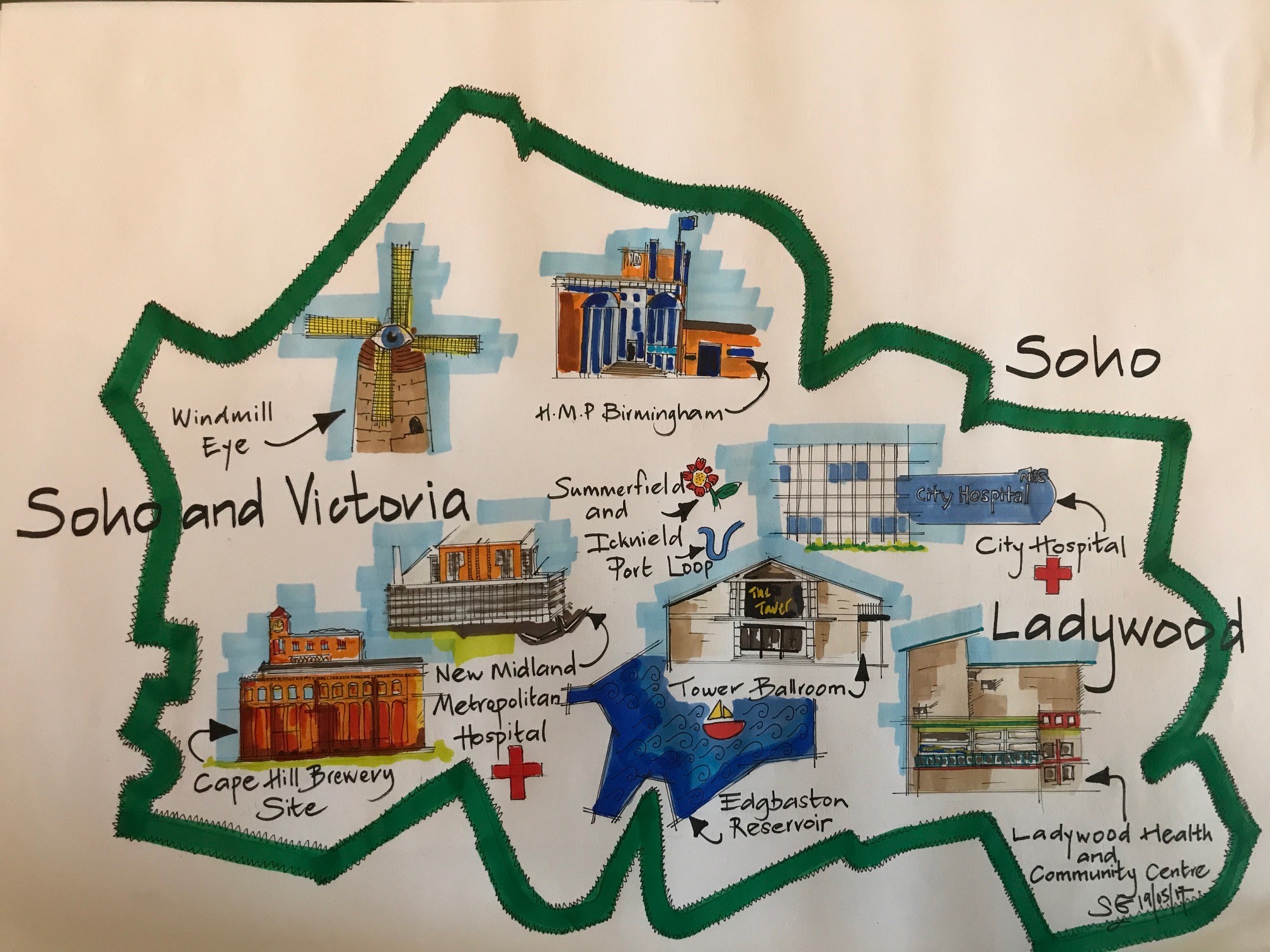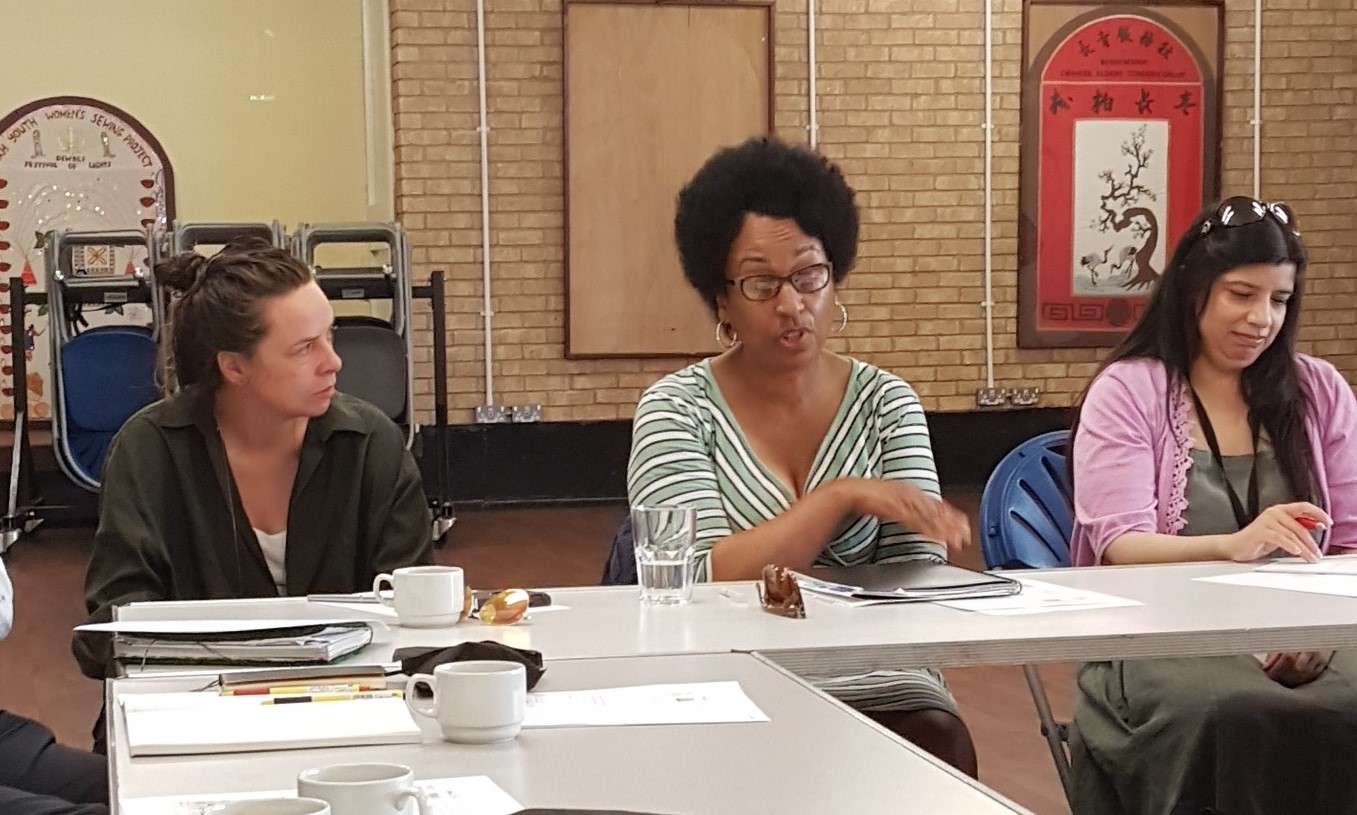 USE-IT! is a three-year European Union funded programme which aims to pioneer innovative approaches to inclusive urban development in an area of persistent poverty and deprivation in inner city Birmingham. The programme is framed around urban poverty and urban transformations and is led by Centre for Urban and Regional Studies (CURS) at the University of Birmingham. CURS have been working on this exciting and innovative project for nearly two years now with project partners within the university and at other institutions. The USE-IT project has helped to unlock hidden skills and opportunities by recognising assets in local communities and connecting them with the macro assets of the area presented in two major infrastructure projects. The project is based on a three main mechanisms to tackle urban poverty; Community Research, Skills Matching and Social Enterprise.
USE-IT! is a three-year European Union funded programme which aims to pioneer innovative approaches to inclusive urban development in an area of persistent poverty and deprivation in inner city Birmingham. The programme is framed around urban poverty and urban transformations and is led by Centre for Urban and Regional Studies (CURS) at the University of Birmingham. CURS have been working on this exciting and innovative project for nearly two years now with project partners within the university and at other institutions. The USE-IT project has helped to unlock hidden skills and opportunities by recognising assets in local communities and connecting them with the macro assets of the area presented in two major infrastructure projects. The project is based on a three main mechanisms to tackle urban poverty; Community Research, Skills Matching and Social Enterprise.
The Community Research mechanism encourages local people within the community to engage with the different project partner institutions through training into doing community research work. This strand is led by the University of Birmingham and seeks to develop research and analytical skills in the local community. It also seeks to increase the university’s visibility within areas of deprivation and develop the idea of our civic university as a rooted anchor institution in the local area. The area of focus for this programme is extremely diverse, by all definitions of the term. It was reported that the Greater Icknield area is not a geography that many people locally recognise.
With more than 75 community researchers to date, this mechanism unlocked huge potential within the communities in Greater Ickneild area to create a pool of experts who live in the city-region. The community researchers seek to find information and data from their close networks within their neighbourhoods doing action research with qualitative as well and quantitative data collected to identify challenges and innovations to problems. This rich data from hard to reach groups helped empower community researchers by valuing their contribution and time but also gave a voice to local communities on issues that matter most to them where traditional public policies have failed. The project team have been working very hard to establish the ethos of Knowledge Equality – the idea that knowledge is not only contained within universities and research centres but that knowledge is contained within communities.

This unique engagement mechanism demonstrates the power of communities and the potential that deprived or derelict neighbourhoods can have when perceived as areas of opportunity and transformation rather than the mainstream regeneration ideas that land upon communities from the above. Community Researchers joining the USE-IT programme not only benefited from its free resources and mentoring from academics and project partners but also were able to be commissioned research projects to work on, gain experience and payment from organisations who are keen on this local intel. Two of our Community Researchers signed up for a Masters in Urban Planning at the Centre for Urban and Regional studies and are now embarking onto their final dissertations. Some of the Community Researchers that have been engaged for a period of time are in an excellent position to support new recruits and provide them with the necessarily skills. This ensures that the pool of Community Researchers can be continually refreshed to cope with the inevitable churn of researchers. Community Researchers are supported to carry out the recruitment and training of new researchers. Community Researchers with the aspiration to develop an organisation to continue Community Research activity saw opportunity for their research services within the market and are in the process of setting up their own Community Research Social Enterprise. Their aim is to be the ‘go to’ place for strategic issues that face the city-region and provide expertise on strategic investments that impact communities. USE-IT has been providing support to increase their recognition and status of equality to affect positive change for communities in the city-region.

With the success of USE-IT to create a change in perceptions and empower communities, How can we really use USE-IT? USE-IT! impact and opportunities exist for learning from the programme to embed as an approach to economic development, place based working (Localism) and Anchor Institutions in the city as well as inclusive growth. It is crucial that these opportunities are investigated and links made with relevant stakeholders during the final year of the programme so that opportunities to embed the USE-IT legacy are not lost.
This blog was written by Dr Sara Hassan, Research Fellow, City-REDI.
Disclaimer:
The opinions presented here belong to the author rather than the University of Birmingham.
To sign up for our blog mailing list, please click here.
